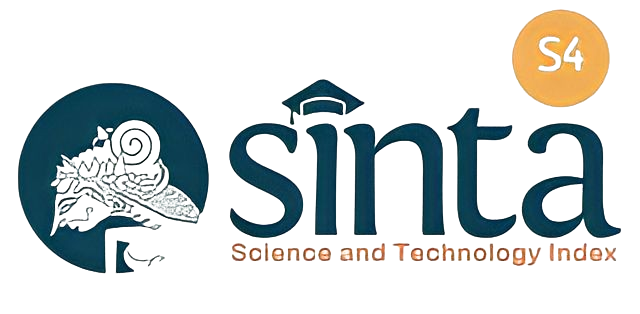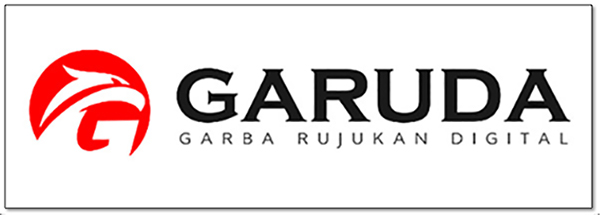Design and Development of an Android-Based Application for Hydroponic Introduction and Learning Media
DOI:
https://doi.org/10.34012/jutikomp.v8i1.6668Keywords:
Android, Hydroponics, Learning MediaAbstract
Learning media will make it easier for people to learn hydroponic vegetable planting material compared to books because there are visualizations of images and videos so that it will be understood more quickly than just reading. Android is one of the open-source programming languages that allows makers to modify and distribute the results of making applications freely and freely. Developing learning media for hydroponic vegetable planting using Android will make it easier for readers because this application can be used anywhere without carrying more weight than books. In this learning media to be built, the advantages of this application are the visualization of attractive graphics, and simple decision support features related to the implementation of hydroponic farming, which includes capital and available land, as well as suitable plant species. The application has been successfully made, and based on the test results, it can be concluded that it can be appropriately used and produce results according to the design. The suggestions from this research are related to the application's appearance, which can still be developed to be more attractive.
References
Buhari, B., & Sari, R. M. (2022). Development of Laboratory Skills Application Based on Android as a Media of Flipped Learning Model for Nursing Student. The Malaysian Journal of Nursing Vol. 14 No. 1.
Carrillo, G. A., Cohen-Wolkowiez, M., D'Agostino, E. M., Marsolo, K., Wruck, L. M., Johnson, L., . . . Kibbe, W. A. (2022). Standardizing, harmonizing, and protecting data collection to broaden the impact of COVID-19 research: the rapid acceleration of diagnostics-underserved populations (RADx-UP) initiative. Journal of the American Medical Informatics Association.
Daraghmi, Y.-A., & Daraghmi, E.-Y. (2022). RAPD: Rapid and Participatory Application Development of Usable Systems During COVID19 Crisis. IEEE Access, vol. 10.
Fukawa, N., Zhang, Y., & Erevelles, S. (2021). Dynamic Capability and Open-Source Strategy in the Age of Digital Transformation. Journal of Open Innovation: Technology, Market, and Complexity.
Giyarsih, S. R., Armansyah, A., Zaelany, A. A., Latifa, A., Setiawan, B., Saputra, D., . . . Fathurohman, A. (2023). Interrelation of Urban Farming And Urbanization: An Alternative Solution To Urban Food And Environmental Problems Due to Urbanization in Indonesia. Frontiers in Built Environment.
Gomero-Fanny, V., Bengy, A. R., & Andrade-Arenas, L. (2021). Prototype of Web System for Organizations Dedicated to e-Commerce under the SCRUM Methodology. International Journal of Advanced Computer Science and Applications(IJACSA), 12(1).
Ikwunne, T. A., Adigwe, W., Nnamene, C. C., Ogwara, N. O., Okemiri, H. A., & Emenike, C. E. (2021). Design and Implementation of Collaborative Management System for Effective Learning. International Journal of Advanced Computer Science and Applications(IJACSA), Volume 12 Issue 10.
Kanthed, B., Soni, A., Dive, K., & Sharma, A. (2024). The Role Of Media In Education: A Comprehensive Review. Educational Administration: Theory and Practice Vol. 30 No. 3.
Kurnialensya, T. (2019). Media Pembelajaran Rawat Tanaman Hidroponik Berbasis Mobile Android. JOUTICA Volume 4 No.2.
Novianto, D. (2018). Perancangan Aplikasi Android Untuk Media Pembelajaran Budidaya TanamanSecara Hidroponik Dengan Metode Demon-Disco Learning. ELKOM JURNAL ELEKTRONIKA DAN KOMPUTER Vol. 11 No.1.
Pinem, A. A., Yeskafauzan, A., Handayani, P. W., Azzahro, F., Hidayanto, A. N., & Ayuningtyas, D. (2020). Designing a health referral mobile application for high-mobility end users in Indonesia. Heliyon, Volume 6, Issue 1.
Rajalakshmi, M., Manoj, V. R., & Manoj, H. (2022). Comprehensive Review of Aquaponic, Hydroponic, and Recirculating Aquaculture Systems. Journal of Experimental Biology and Agricultural Sciences (JEBAS) Vol. 10 No. 6.
Downloads
Published
How to Cite
Issue
Section
License
Copyright (c) 2025 Nur Qodariyah Fitriyah, Ulya Anisatur Rosyidah, Hardian Oktavianto

This work is licensed under a Creative Commons Attribution-ShareAlike 4.0 International License.
- Hak Cipta atas naskah-naskah karya ilmiah di dalam Jurnal ini dipegang oleh Penulis.
- Penulis menyerahkan hak saat pertama kali mempublikasi Naskah karya ilmiahnya dan secara bersamaan Penulis memberikan izin/lisensi dengan mengacu pada Creative Commons Attribution-ShareAlike 4.0 International License kepada pihak lain untuk menyebarkan karya ilmiahnya tersebut dengan tetap mencantumkan penghargaan bagi penulis dan Jurnal Teknologi dan Ilmu Komputer Prima sebagai media Publikasi pertama atas karya tersebut.
- Hal-hal yang berkaitan dengan non-eksklusivitas pendistribusian Jurnal yang menerbitkan karya ilmiah penulis dapat diperjanjikan secara terpisah (contoh: permintaan untuk menempatkan karya yang dimaksud pada perpustakaan suatu institusi atau menerbitkannya sebagai buku) dengan Penulis sebagai salah satu pihak perjanjian dan dengan penghargaan pada Jurnal Teknologi dan Ilmu Komputer Prima sebagai media publikasi pertama atas karya dimaksud.
- Penulis dapat dan diharapkan untuk mengumumkan karyanya secara online (misalnya pada Repositori atau pada laman Organisai/Institusinya) sejak sebelum dan selama proses pengumpulan naskah, sebab upaya tersebut dapat meningkatkan pertukaran citasi lebih awal dan dengan cakupan yang lebih luas.







